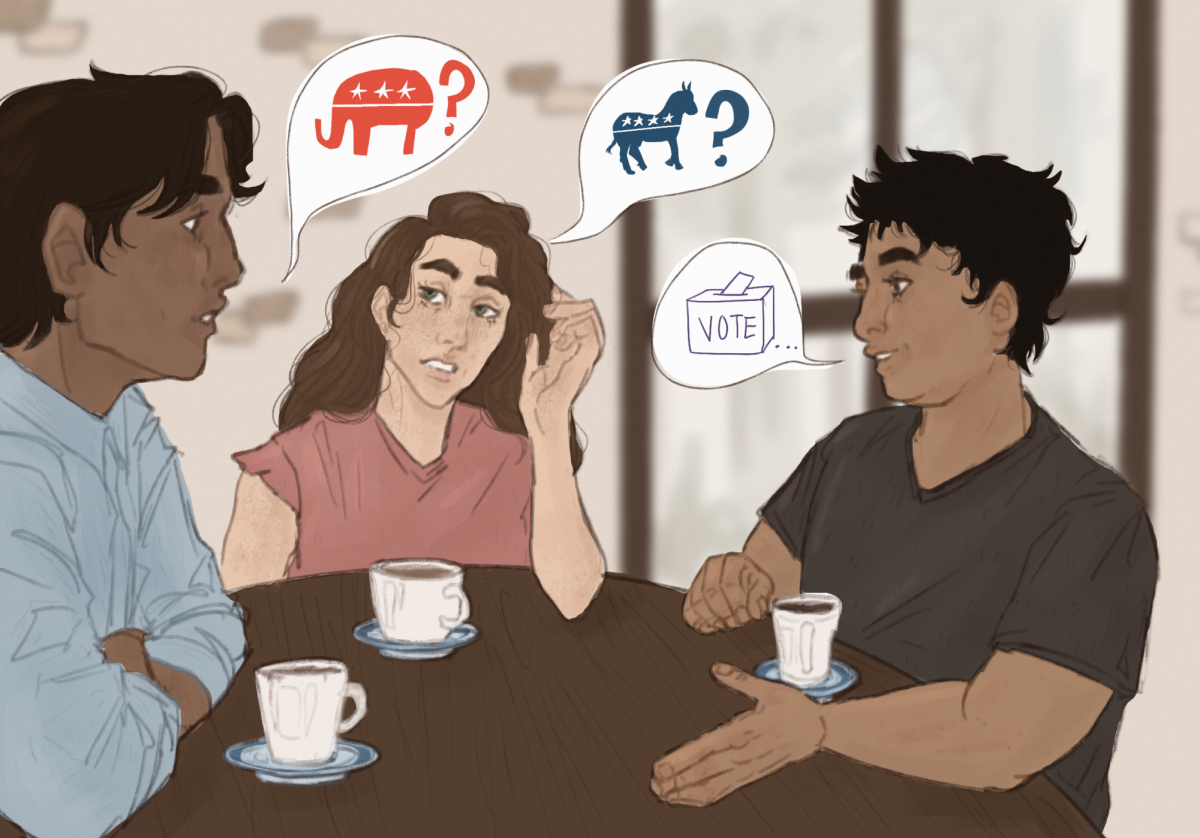The current political environment is divided and fraught with confrontational styles of political discussion. Yet this climate prevents us from effectively communicating our point of view or taking the time to understand different outlooks. However, universities should facilitate student participation in political conversation by holding more events that promote student-led activism.
Environments where students feel they can be open and have conversations about sensitive topics are crucial for healthy political conversation. Without the proper environment, discussions can quickly turn into ineffective arguments that do more harm than good by further increasing political tensions.
Isaiah Rodriguez, a government junior and president of BRIDGETexas, said that UT-organized political conversations should become more common across campus since they can teach students to discuss topics more productively.
“If we have more programs like (Pizza and Politics) around other schools and colleges at UT, then it’s a good way to teach students that you can be in a room with someone who might disagree with you and it doesn’t necessarily have to be about arguing,” Rodriguez said.
Political involvement is on the rise among college students, with 17.7% more UT students voting in the 2020 presidential election compared to 2016. Giving students more opportunities to express their political opinions is an important part of their voices being heard. However, many students are unaware of the opportunities that currently exist on campus to do so. Increasing the number of events and the promotion of these events across UT colleges could give students opportunities for political discourse in a controlled environment.
Gina Masullo, an associate professor in journalism and media, said she has noticed many political events fly under the radar during her time at the University.
“I know there’s often events going on at campus that I don’t hear about until they’re over, and I’m sure that’s the case for students, too,” Masullo said.
The lack of awareness around both student and University-hosted political conversation is alarming because politics play an important role in every young adult’s life. Being critical of an opposing argument while maintaining a respectful attitude is crucial. Without opportunities on campus to expose students to different ideas and values, it can be difficult for students to develop these skills.
As the future leaders of America, increasing student activism on campus could help ensure a healthy political landscape for decades to come.
Henneke is an anthropology sophomore from Austin, Texas.















